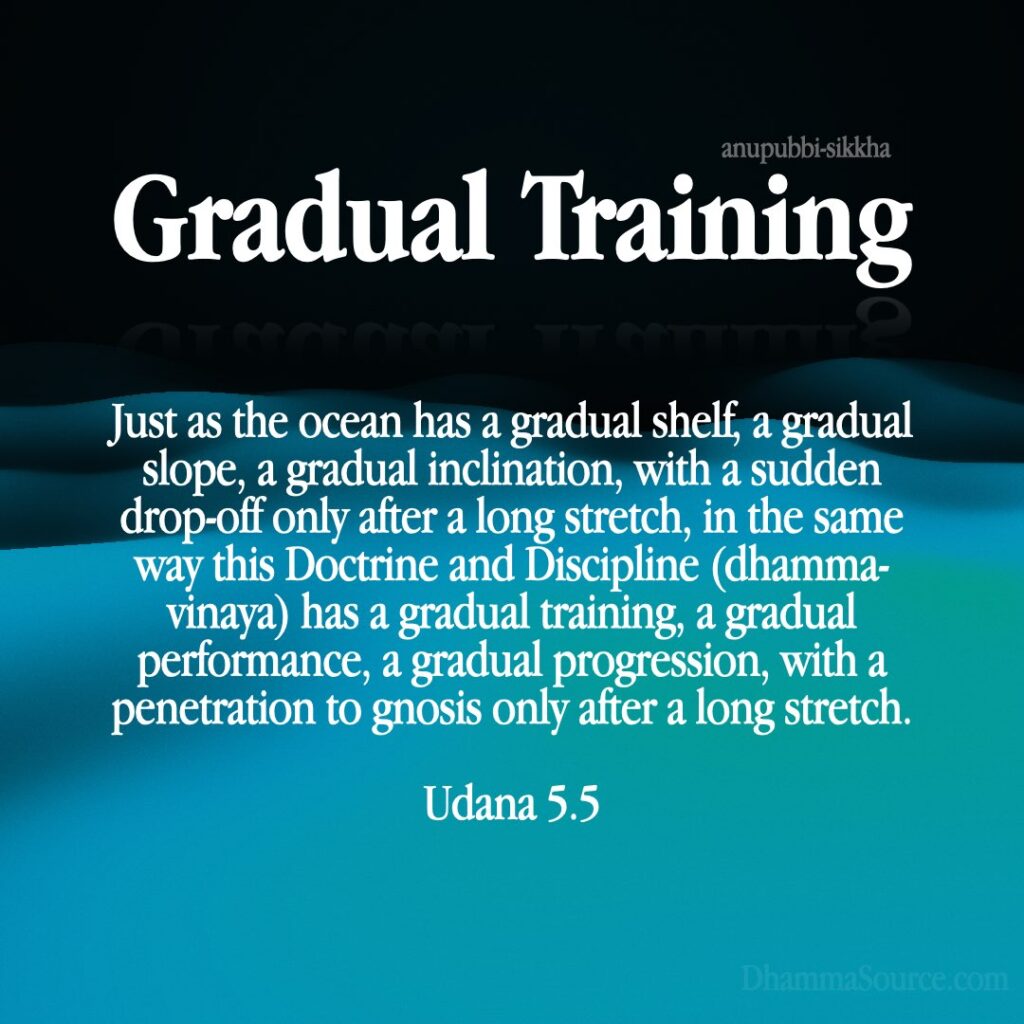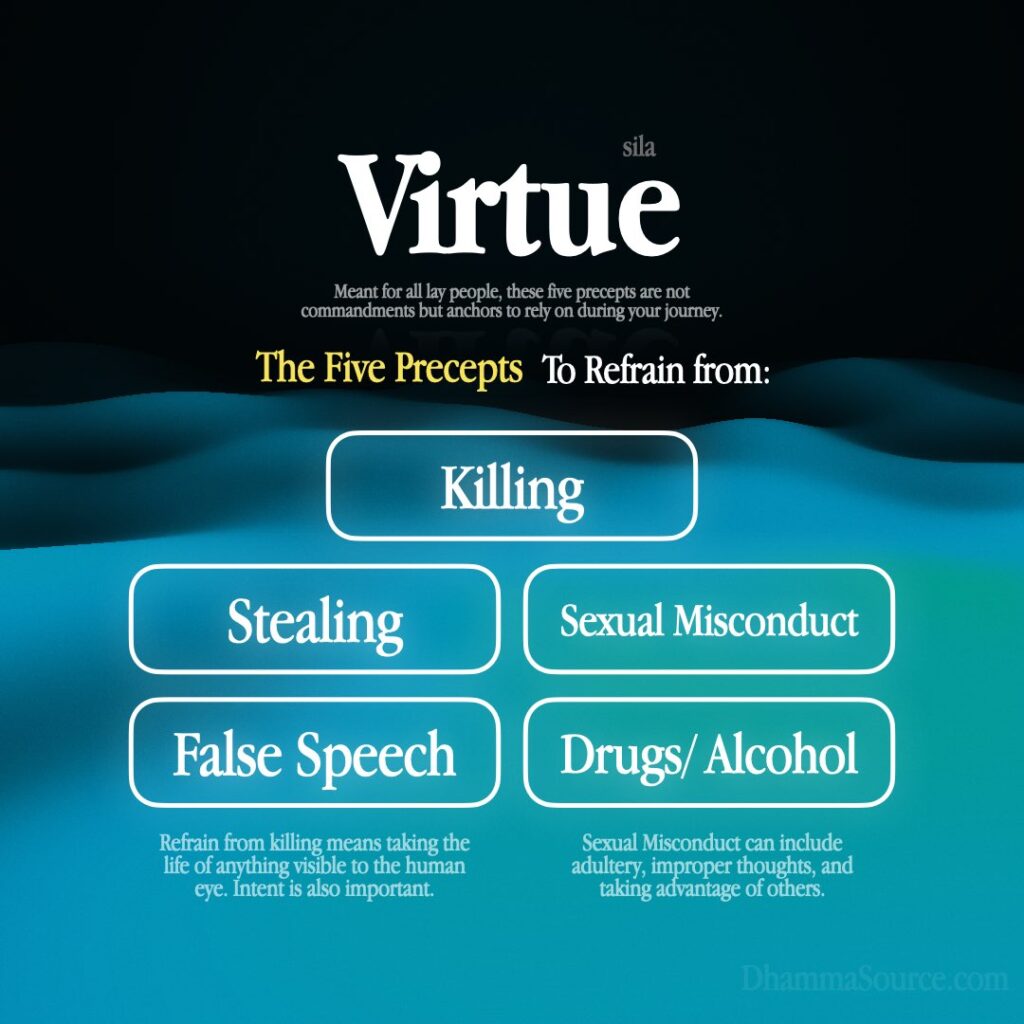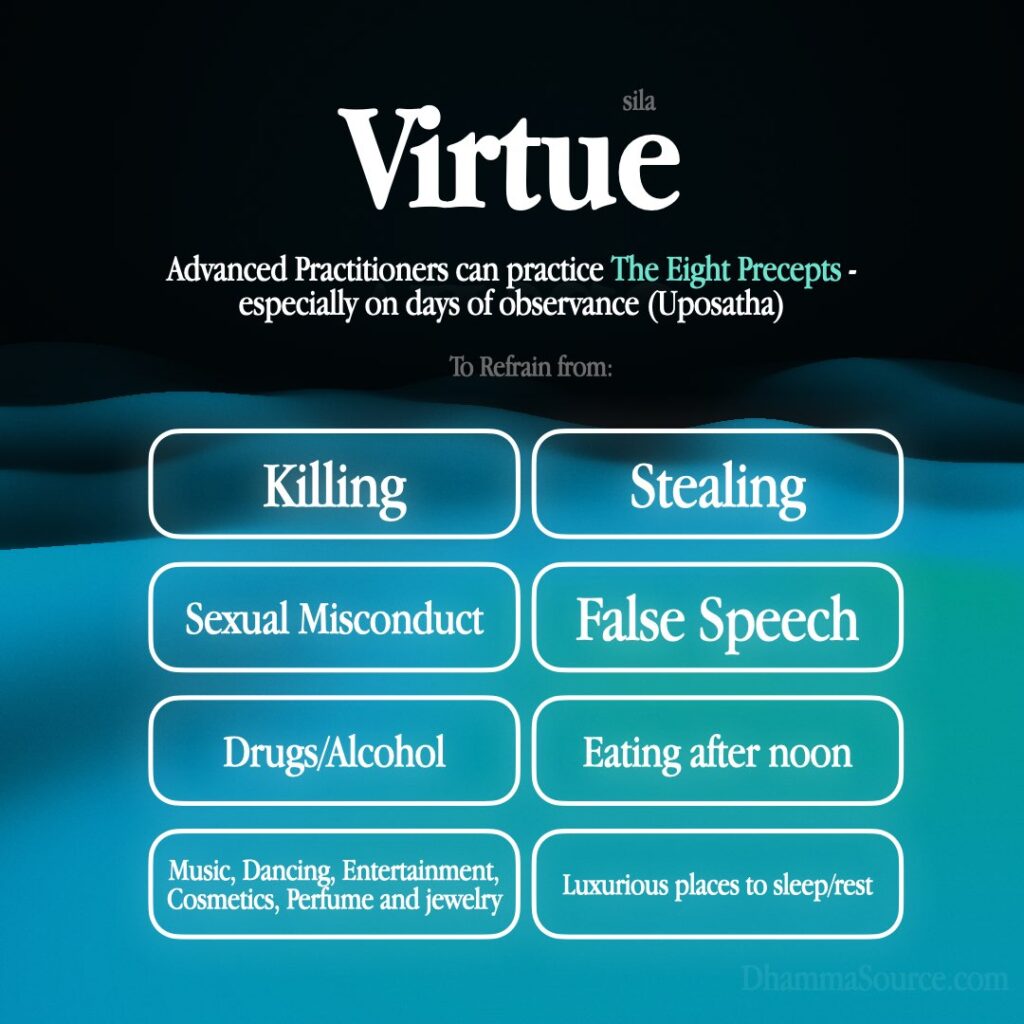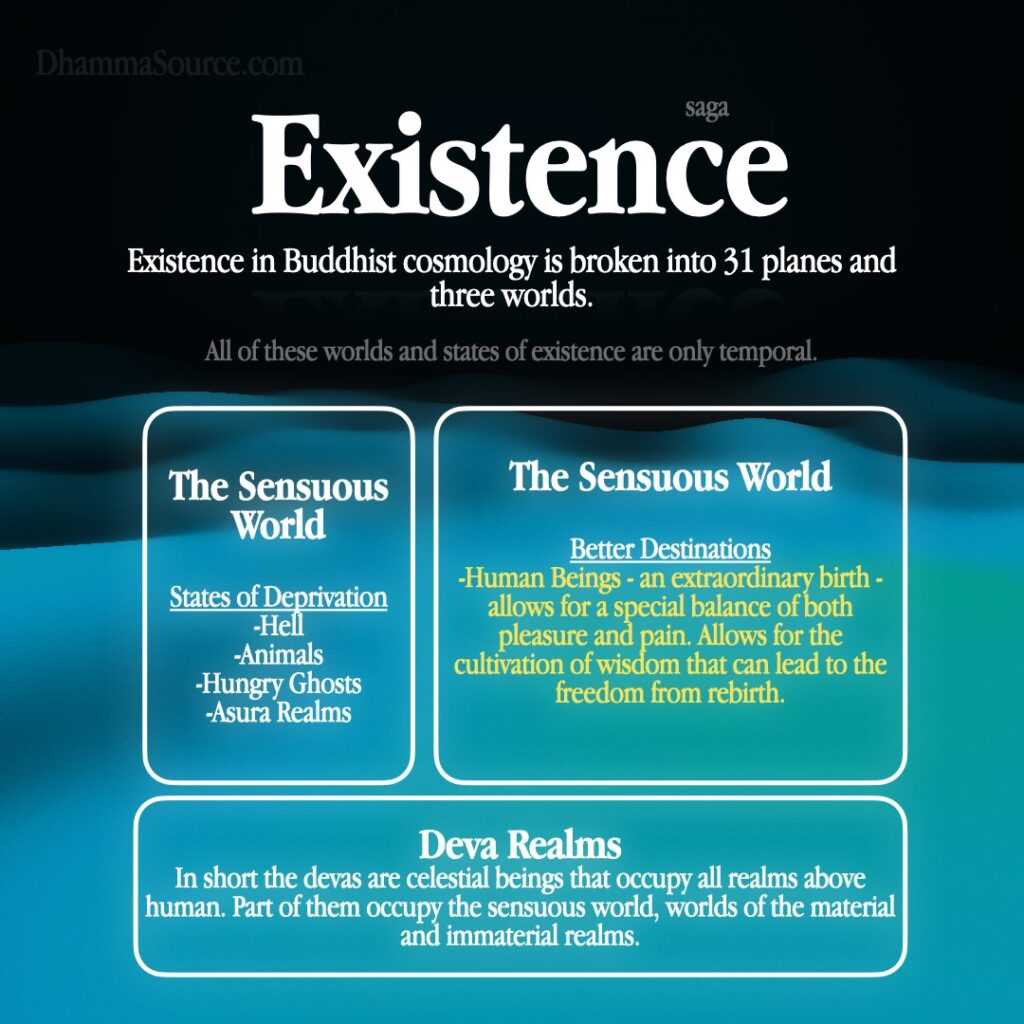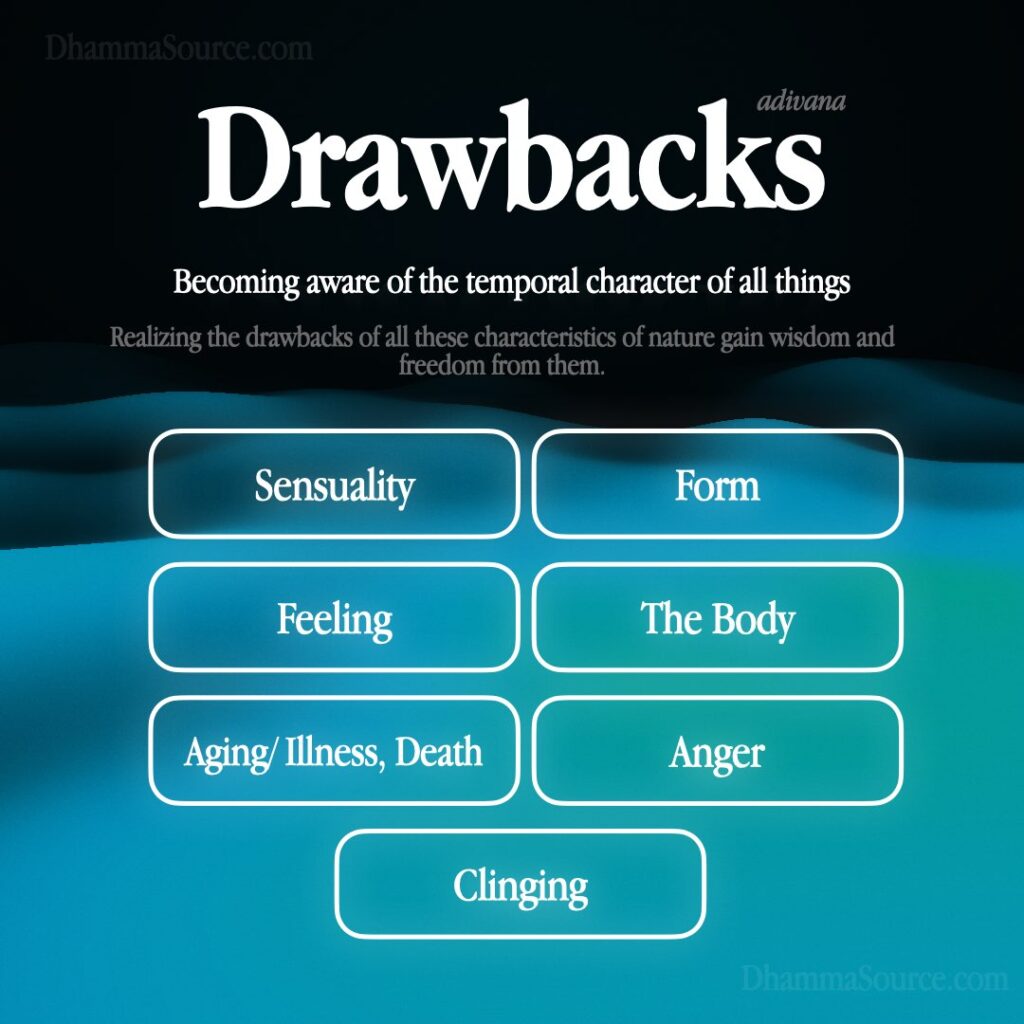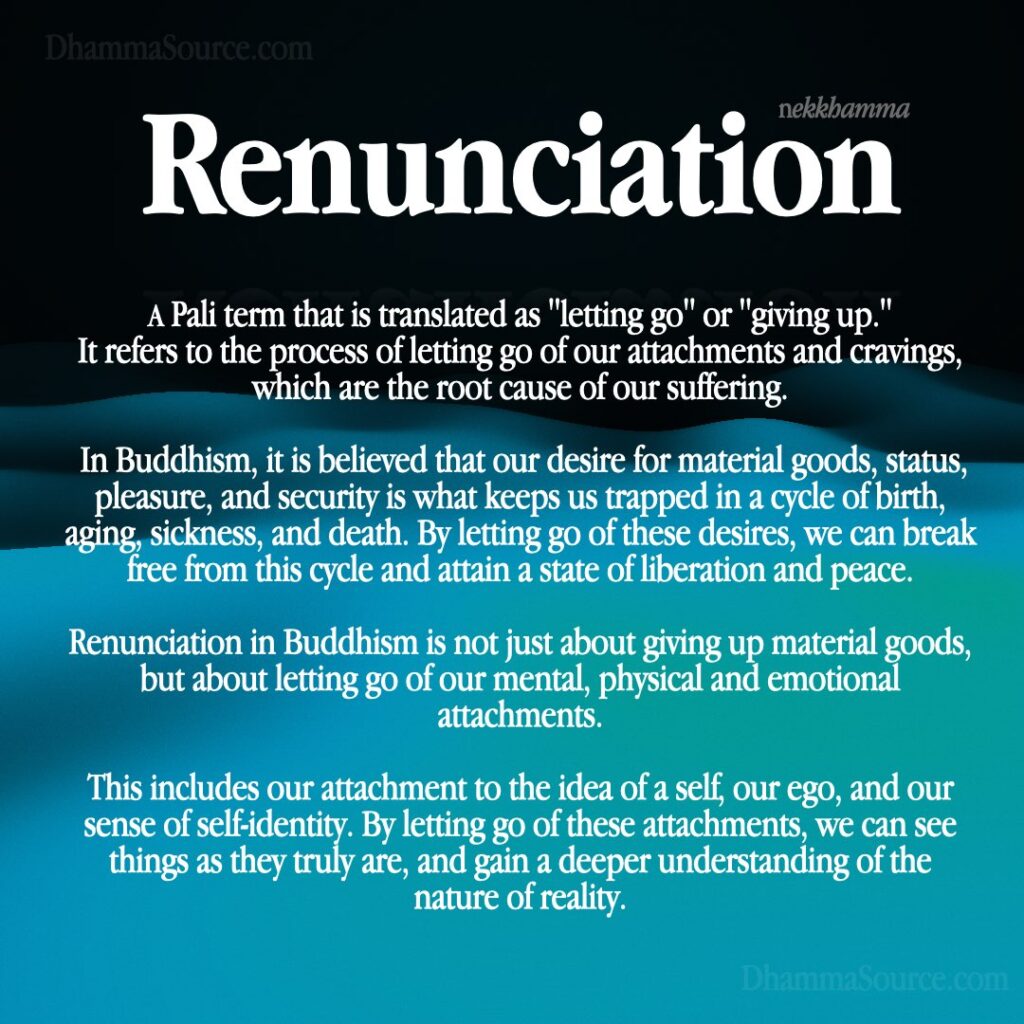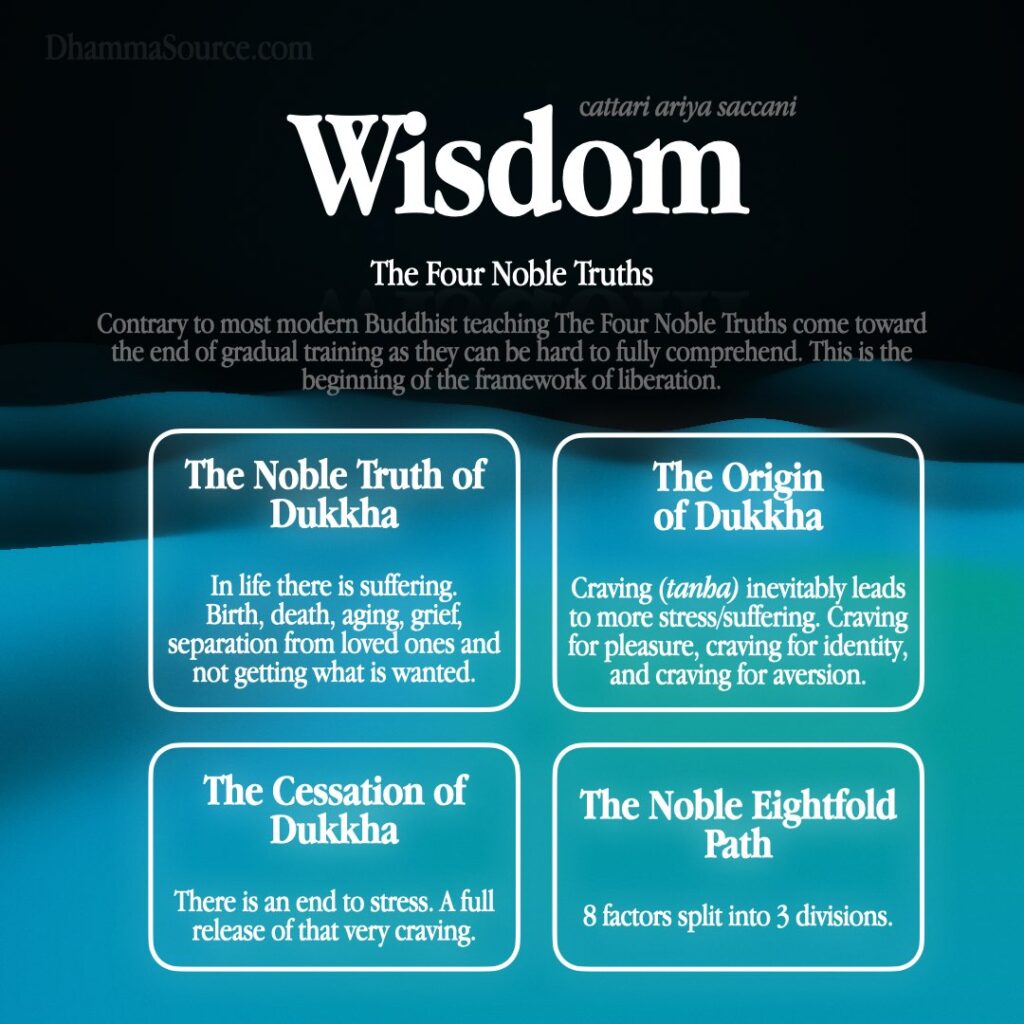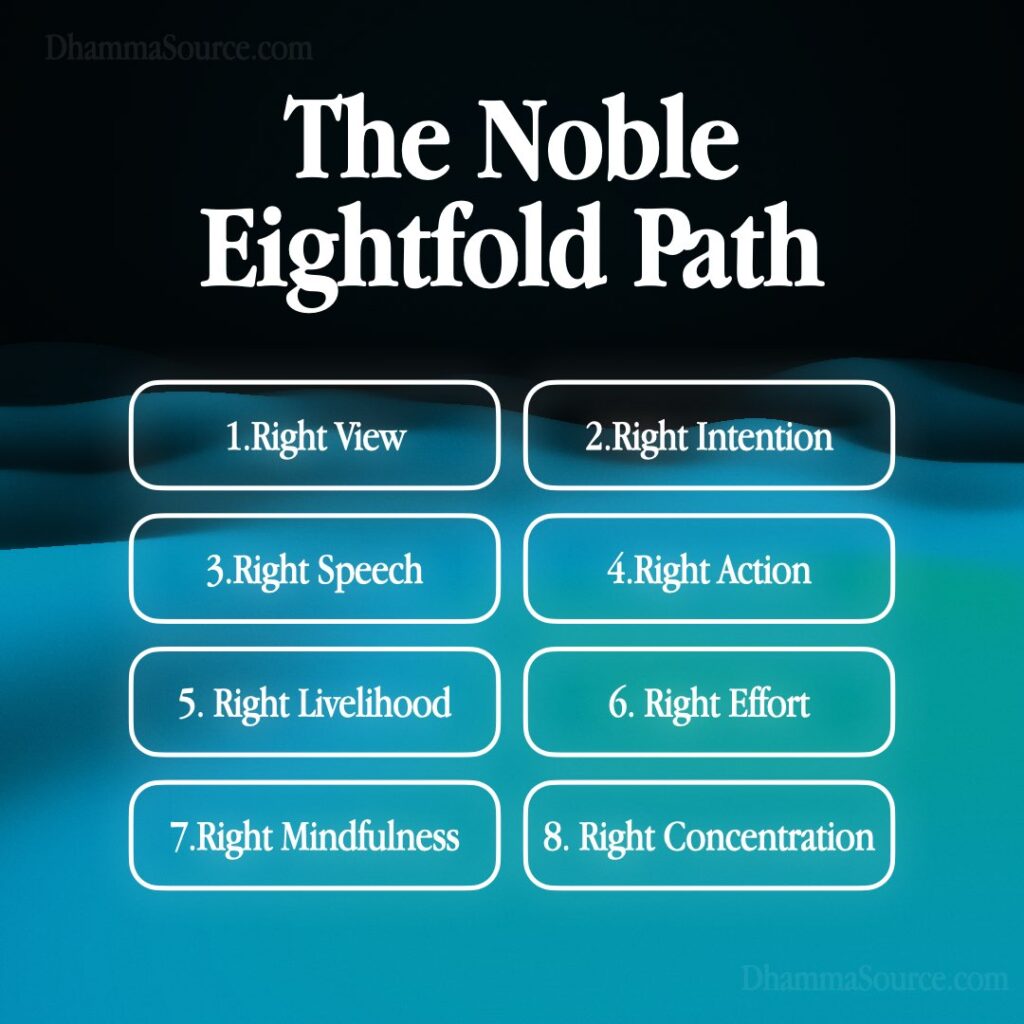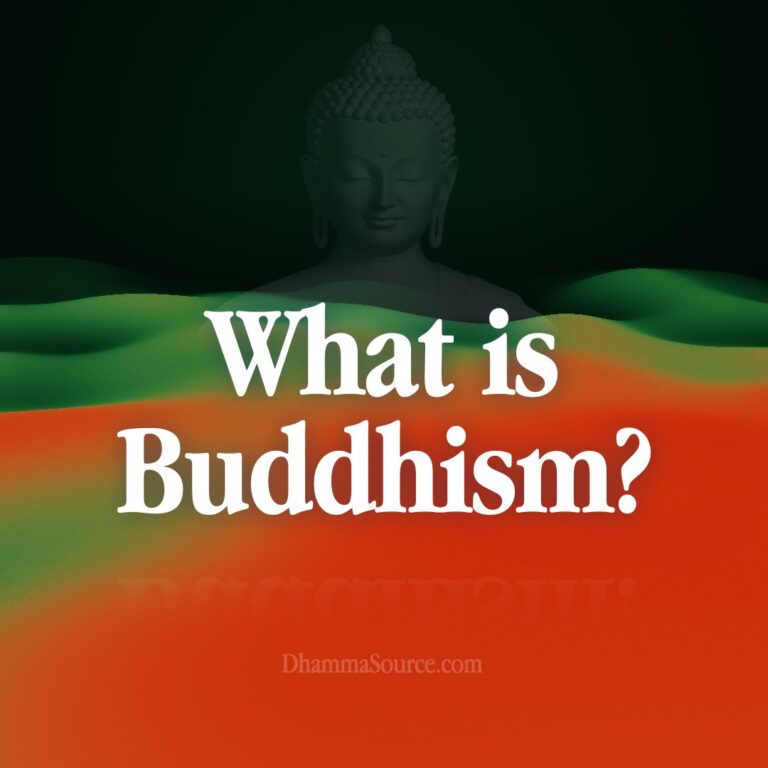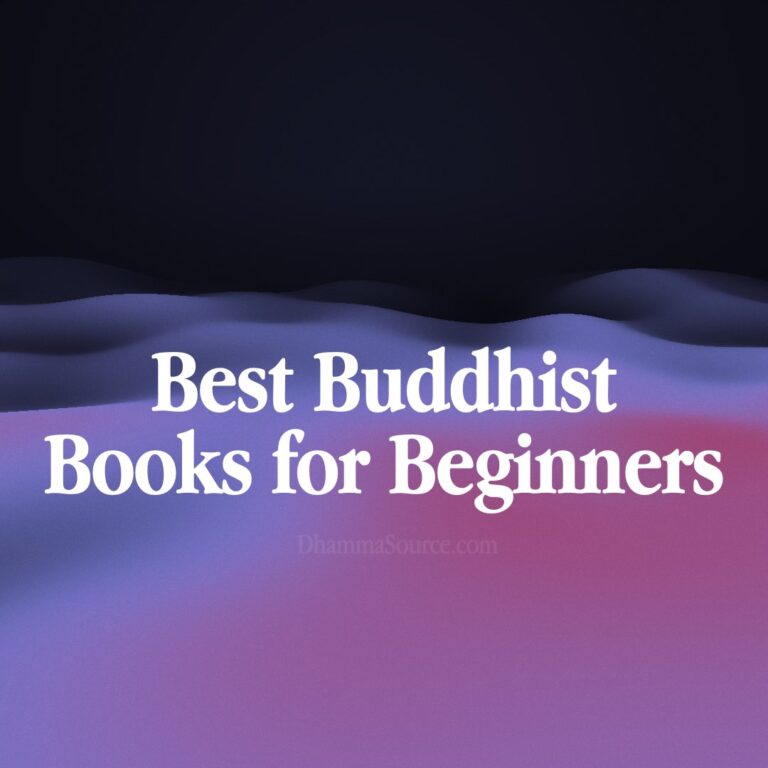Gradual Training – Buddhism

Typically Buddhist literature starts you off learning about the Four Noble Truths but for most people it’s just far too difficult to fully understand.
It can take years of spiritual progress to really internalize them. Even The Buddha put the Four Noble Truths towards the end of the initial training.
Buddhism is a paradoxically simple and deep – but at the end of the day the purpose is to find calm, be a good person, and investigate the nature of reality. Cultivating your spirituality takes time – its something that cannot be rushed.
There are six stages of gradual training. Each stage compounds on itself to create a strong spiritual foundation. The Buddhist path begins with:
Cultivating generosity, practicing virtue, understanding existence, understanding drawbacks, practicing renunciation, and cultivating wisdom.
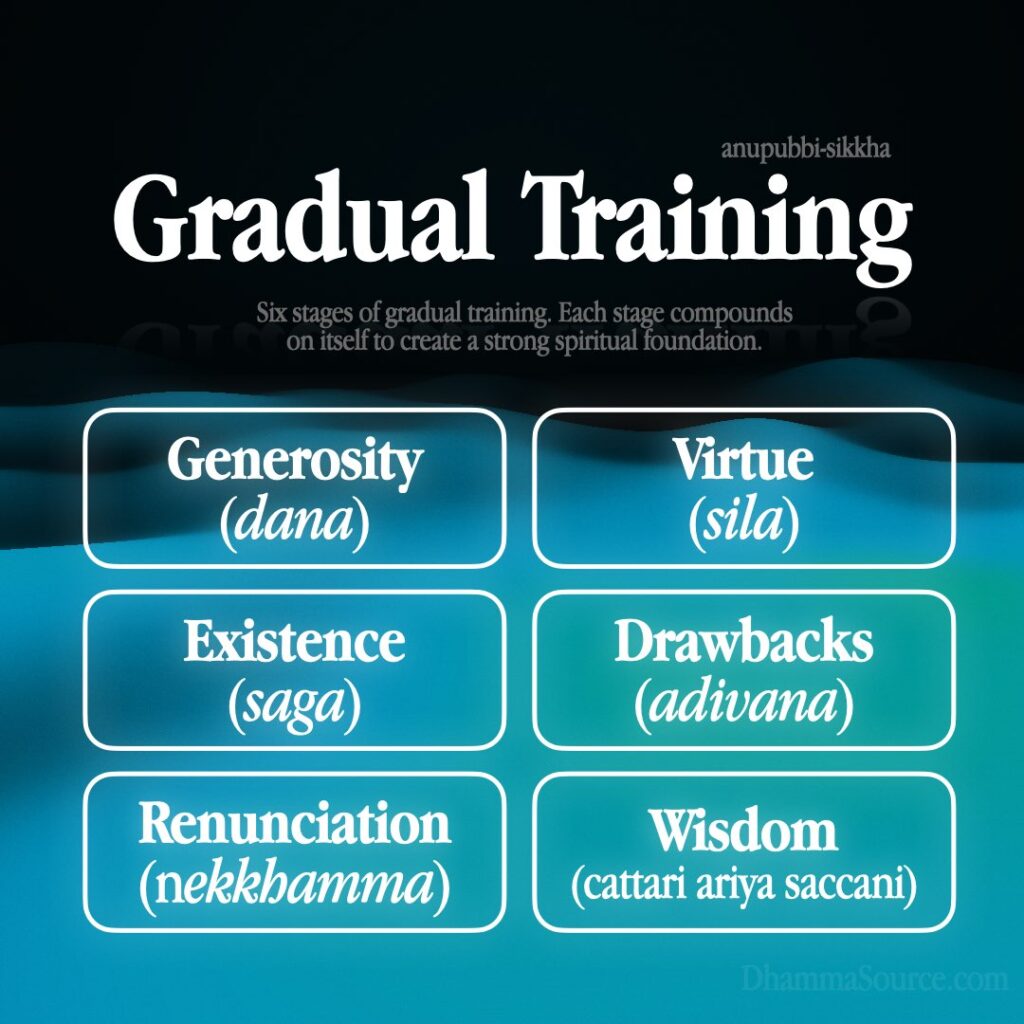
Just as the ocean has a gradual shelf, a gradual slope, a gradual inclination, with a sudden drop-off only after a long stretch, in the same way this Doctrine and Discipline (dhamma-vinaya) has a gradual training, a gradual performance, a gradual progression, with a penetration to gnosis only after a long stretch.
The Buddha Udana 5.5
Generosity
Generosity can be shown in many different ways. I also believe a general sense of gratitude can inspire yourself to be generous to others. It can ground you and as you investigate further you can reflect on how blessed you already are.
Making merit by giving to others in (physical or spiritual) is a foundational practice that can reward you in ways you could never think of.
“And what is the treasure of generosity? There is the case of a disciple of the noble ones, his awareness cleansed of the stain of stinginess, living at home, freely generous, openhanded, delighting in being magnanimous, responsive to requests, delighting in the distribution of alms. This is called the treasure of generosity.”
The Buddha Udana 5.5
Virtue
Practicing virtue means refraining from certain actions. There are five precepts meant to be upheld by all lay people. These are not commandments but rather guideposts for yourself to rely on. They can help anchor you on your journey when life can easily get in the way.
The Five Precepts are:
- To Refrain from killing – taking life can have severe consequences karmically and this may be the only precept I would consider a commandment. Don’t get hung up if you kill an ant without the intent to. Refrain from taking the life of anything visible to the naked eye.
- To Refrain from taking things which are not given – including stealing.
- To refrain from sexual misconduct – this includes adultery, cheating, rape and even thoughts can count as misconduct.
- To refrain from false speech – lying, misleading on purpose.
- To refrain from taking intoxicating drugs or alcohol – these things can cloud the mind and inevitably lead to nothing good. A sober life is a noble one none the less.
The Eight precepts are meant for more advanced practitioners or when you practice on Uposotha days.
The third precept becomes to refrain from all sexual activity.
- 6. To refrain from eating after noon.
- 7. To refrain from music, dancing, entertainment, cosmetics, perfume, and jewlery.
- 8. To refrain from luxuries place to sleep, sit and rest.
Existence (The Realms)
Gaining understanding of your place in existence can help cultivate gratitude and ardency. All of these worlds are only temporal. I highly suggesting reading more into this yourself here. It is important to know that being born a human is extremely lucky.
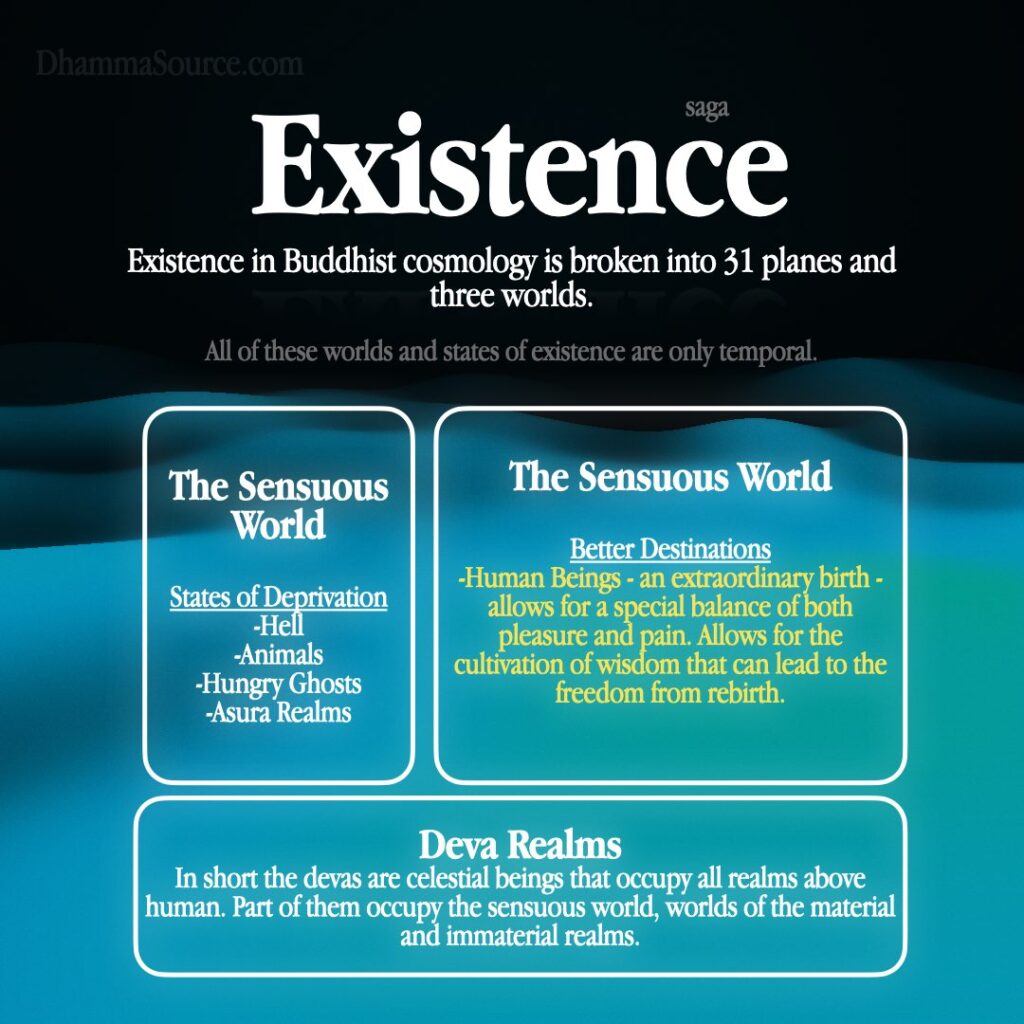
Bhikkhus, a man would throw into the ocean a plough share with a single hole in it. Then with the eastern winds it would be carried west and with the western windscarried east. With the northern winds it would be carried south and with the southern winds carried north. Then there is a blind turtle in the depths of the ocean and it comes up to the surface after the lapse of a hundred years. Bhikkhus this turtle with one eye to see would he put his neck in the plough share and yoke it to the hole to see light?’
‘Venerable sir, it would happen after the lapse of a very long time.’
‘Bhikkhus, it is more likely that the blind turtle would put his neck in the plough share and yoke the eye to the hole to see light rather than the fool once fallen to hell would gain humanity. What is the reason? Here, there is no righteous living, good conduct, merit or a pleasant mind
The Buddha 129 Balapandita Sutta
Drawbacks
Understanding the drawbacks and temporal character of all things can help you in spiritual development. Understanding them can also help you free yourself from them. Completley disconnecting from these can also lead to disconnection from the path – some of them have their place to cultivate your spirituality.
- Sensuality
- Form
- Feeling
- The Body
- Aging, Illness and Death
- Anger/Hate
- Clinging
Renunciation
A Pali term that is translated as “letting go” or “giving up.”
It refers to the process of letting go of our attachments and cravings, which are the root cause of our suffering.
In Buddhism, it is believed that our desire for material goods, status, pleasure, and security is what keeps us trapped in a cycle of birth, aging, sickness, and death. By letting go of these desires, we can break free from this cycle and attain a state of liberation and peace.
Renunciation in Buddhism is not just about giving up material goods, but about letting go of our mental, physical and emotional attachments.
This includes our attachment to the idea of a self, our ego, and our sense of self-identity. By letting go of these attachments, we can see things as they truly are, and gain a deeper understanding of the nature of reality.
Wisdom
This where the Four Noble Truths can be properly introduced. They are the foundation of Buddhist practice and can take years to truly internalize and understand. They are the framework that lead to liberation.
- The Noble Truth of Dukkha: In life there is suffering
- The Noble Truth of the Origin of Dukka: Craving leads to suffering
- The Noble Truth of the Cessation of Dukkha: There is an end to suffering
- The Noble Truth of The Path Leading to the End of Dukkha: The Noble Eightfold Path
- Right View (Discernment) – Knowledge of the Four Noble Truths.
- Right Intent – Being resolved on renunciation, on freedom from ill-will, on harmlessness.
- Right Speech (Virtue) – Refrain from lying, from divisive speech, from abusive speech & from idle chatter.
- Right Action – Abstaining from taking life, abstaining from stealing, abstaining from unchastity.
- Right Livelihood – A lay follower should not engage in five types of business. Which five? Business in weapons, business in human beings, business in meat, business in intoxicants, and business in poison.
- Right Effort (Concentration) – Abandonment of what is unskillful and developing what is skillful.
- Right Mindfulness – Ardency, Alerntness and mindful of the body.
- Right Concentration: Cultivating meditation and insight. The Jhanas.
After making progress on cultivating and understanding I highly recommend reading some of these books and starting to read some of the Buddhas actual words:
